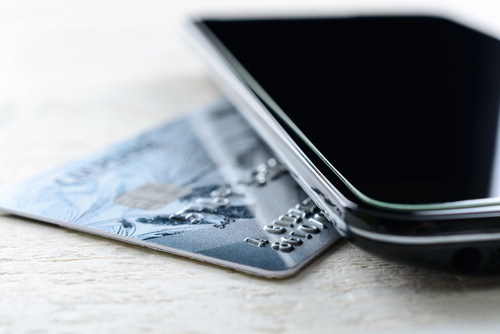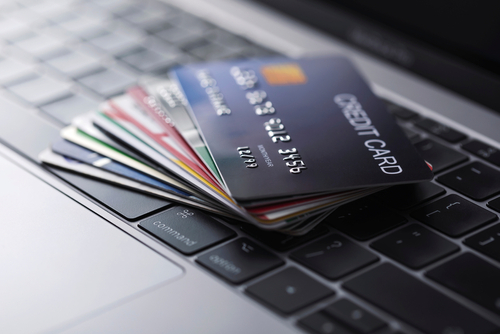Credit Cards
Credit cards and prepaid credit cards can assist you control your spending by setting your balance up front. You should note that debit and prepaid cards are quite different from credit cards.
 A prepaid card is an effective tool for a person who needs a little assistance with budgeting, but prefers the convenience of not constantly pulling out cash, or lacks the best credit. Prepaid credit cards are different from credit cards in the sense that they will not allow you to enjoy the greatest benefit of credit cards—the capacity to assist in building your credit over time. That said, there are several good reasons to obtain a prepaid credit card. In this page, we shall explore the process involved in getting a credit and a prepaid card, the costs involved, and how they operate.
A prepaid card is an effective tool for a person who needs a little assistance with budgeting, but prefers the convenience of not constantly pulling out cash, or lacks the best credit. Prepaid credit cards are different from credit cards in the sense that they will not allow you to enjoy the greatest benefit of credit cards—the capacity to assist in building your credit over time. That said, there are several good reasons to obtain a prepaid credit card. In this page, we shall explore the process involved in getting a credit and a prepaid card, the costs involved, and how they operate.
How Can You Get a Credit Card and a Prepaid Credit Card?
To obtain a credit card or a prepaid credit card, you must finish an application on the prepaid credit card and credit card provider's website. You will be required to provide basic information including, your Social Security number and income.
The provider will proceed to check your credit reports and scores. They will use that information to decide whether you are a good fit for that particular prepaid credit card or credit card. If they ascertain that you are fit, they will approve your application; if not, it'll be denied.
 In the event that your application for a credit card or a prepaid credit card gets rejected don't lose hope. That is merely a sign that you applied for a prepaid credit card or credit card that did not resonate with your credit profile. Secondly, this could also mean that you need to establish a better credit status.
In the event that your application for a credit card or a prepaid credit card gets rejected don't lose hope. That is merely a sign that you applied for a prepaid credit card or credit card that did not resonate with your credit profile. Secondly, this could also mean that you need to establish a better credit status.
Some credit card providers have specific terms and conditions. An example of this is Chase's unwritten '5/24" rule. This rule rejects applications from people who have opened five new credit accounts within the last 24 hours. Such rules will make it impossible for you to obtain a credit card or prepaid credit card despite having a great credit score.
To establish which credit cards you have better chances of getting accepted for, you can visit the providers' websites for pre-qualified card offers. They are totally free and checking them out will not affect your credit status at all. There are chances that your public offers might be less favorable than your private offers.
In the event when you can't find any prequalified offers that resonate with your credit status, you may want to begin with a credit card or a prepaid credit card specifically designed for persons with limited credit. An example of this constitutes the Journey Student Rewards from Capital One. You do not need to be a student to apply for this card.
If you make applications for a number of unsecured cards and they get rejected, you should concentrate on building your credit with a credit-builder loan or a secured credit or prepaid credit card.
What Fees do Credit Cards Charge?
Prepaid credit cards can come with a variety of charges. Before selecting a card, it is important to read the content on the "fine print" to establish the alternative that comes with the lowest charges. Otherwise, they will be eating up the money you deposit to the credit card or prepaid credit card and it will not be of much use to you.
For instance, an average APR of 14% can charge you a large amount of interest even in the case of minute payments. This can rapidly cause your prepaid credit card balance to spin out of control and result in the crushing avalanche referred to as credit card debt.
For example, if you charge $3, 000 to a prepaid credit card with an APR of 17%, and only make payments for the minimum each month, it will take you an entire decade to completely pay off your initial balance. By this time you would have paid over $2, 000 in interest.
The good thing is that you can avoid paying any interest if you pay off your statement balance in full. The reason for this is that most credit card companies only charge interest after the expiry of the statement's due date. So if you complete the full payment of your bill before this date you will not pay any interest.
How do Prepaid Credit Cards and Credit Cards Work?
A credit card can be thought of as a short-term loan from a credit card provider. With a credit card, you will essentially be using the issuer's funds and then they will bill you later. Responsible use of your credit card will assist you to establish good credit.
 A prepaid is usually used as an alternative to Traditional Credit Cards. You have to load funds into your account before using your prepaid card. You will only be allowed to spend the amount of money that you have loaded into your account. It acts in the same manner as a gift card. The amount of money you use in making purchases is deducted from your prepaid credit card. The more you shop the further your available balance declines.
A prepaid is usually used as an alternative to Traditional Credit Cards. You have to load funds into your account before using your prepaid card. You will only be allowed to spend the amount of money that you have loaded into your account. It acts in the same manner as a gift card. The amount of money you use in making purchases is deducted from your prepaid credit card. The more you shop the further your available balance declines.
Once your balance is used up you have to reload your account in order for your prepaid credit card to be viable.
